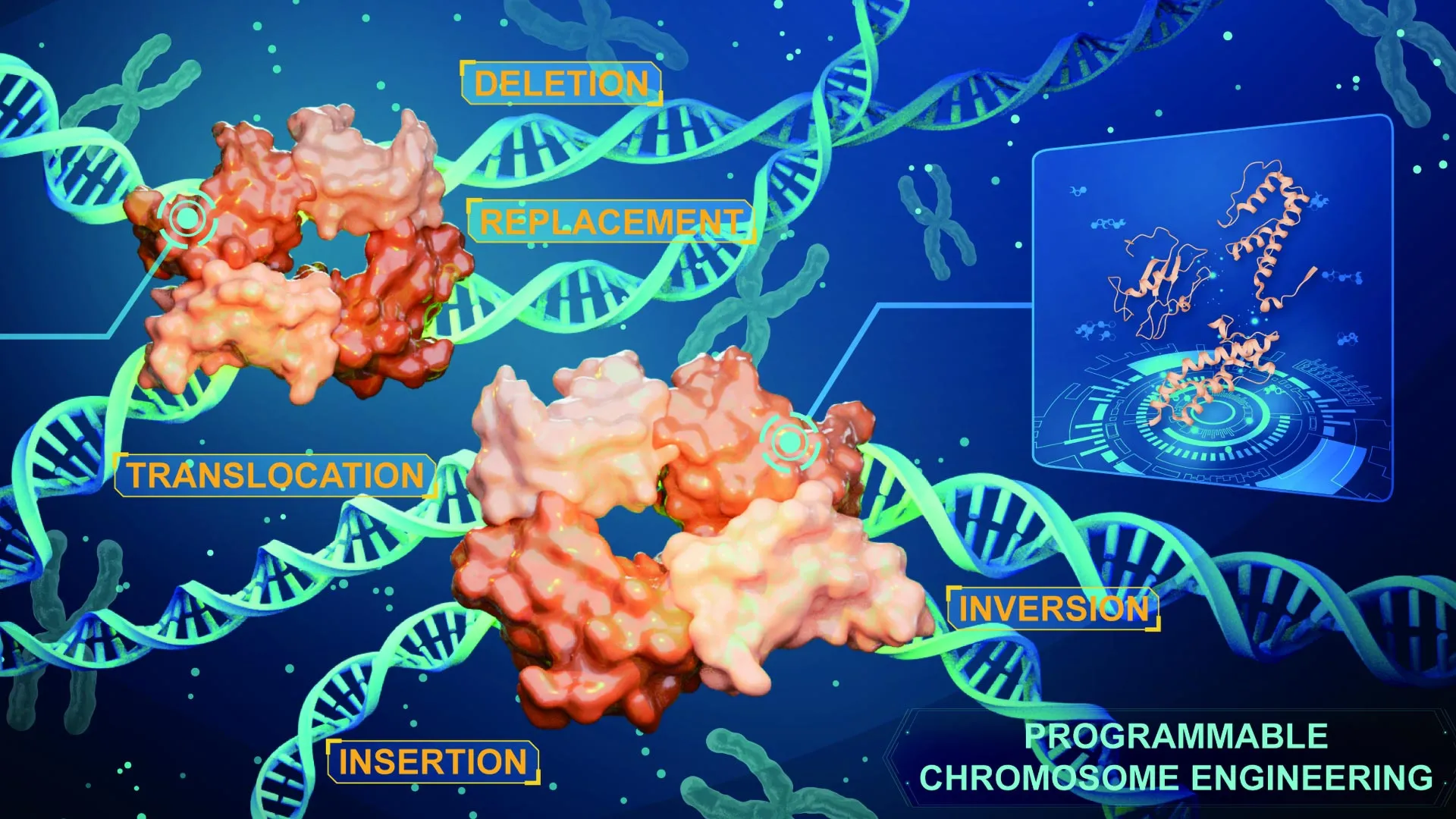Now Reading: Scientists Achieve Breakthrough in Precise Chromosome Editing
-
01
Scientists Achieve Breakthrough in Precise Chromosome Editing
Scientists Achieve Breakthrough in Precise Chromosome Editing

### Swift Summary
– Chinese researchers,led by Prof. Gao Caixia, developed two revolutionary genome editing technologies called Programmable Chromosome Engineering (PCE) systems.
– Published on August 4 in *Cell*, these systems enable high-precision DNA manipulations on kilobase to megabase scales, particularly for plants and higher organisms.
– Historical challenges with the Cre-Lox recombinase system included reversible recombination reactions, engineering complexities due to Cre’s tetrameric nature, and residual Lox sites affecting editing precision.- Innovations introduced include:
– Asymmetric Lox site designs reducing reversible recombination by over 10-fold while retaining efficiency.- AiCErec, an AI-driven method for optimizing Cre’s multimerization interface with a recombinant efficiency boost of 3.5 times compared to natural variants.
– Re-prime editing using pegRNAs to eliminate residual Lox sites seamlessly without leaving genetic “scars.”
– Achievements using PCE platforms include integrating large DNA fragments (up to 18.8 kb), chromosomal inversions spanning up to 12 Mb, deletions up to 4 mb, and whole-chromosome translocations-showcased through creating herbicide-resistant rice germplasm with a precise inversion of a large DNA segment (315 kb).
– The technology addresses historical limitations while enabling transformative advancements in plant genetics and other fields.
[Read More](https://www.sciencedaily.com/releases/2025/08/250805041612.htm)
—
### Indian Opinion Analysis
This groundbreaking achievement represents major strides in bioengineering globally and carries significant implications for India’s agri-tech sector. With food security concerns being a pressing issue for the country-coupled with India’s reliance on genetically modified crops like Bt cotton-such innovations open avenues for improving crop yields sustainably. The proof-of-concept herbicide-resistant rice germplasm aligns closely with India’s vision of leveraging biotechnology for bolstering its agricultural productivity amidst changing climatic conditions.
However, regulatory frameworks need careful adaptation as precision genome edits grow more accessible worldwide; countries such as India face decisions concerning public acceptance of genetically modified organisms (GMOs). Neutral evaluation of safety concerns along with scientific validation could pave the way forward while ensuring robust policies around intellectual property rights tied to innovations unrelated but utilized from international contexts like this study.
Further integration or collaboration opportunities might emerge between Indian agricultural research institutes like ICAR or organizations developing AI models under ‘Digital Agriculture Mission.’ This technology holds potential not merely as proof-of-concept but practical regional applications anytime globally crucial priorities remain human capital training localized use-flexibilities boosting yield-quality intersection fields pending formal testbed-expansive viability-validation rollout supported findings clearest governing-case persuasion-led science trajectory assured adaptability final outcomes neutral stance formulation steps broad balanced socio-economic value judicial review acompanhamento clauses détailed grain agricultural-optimal onward-driven stability drafts



























